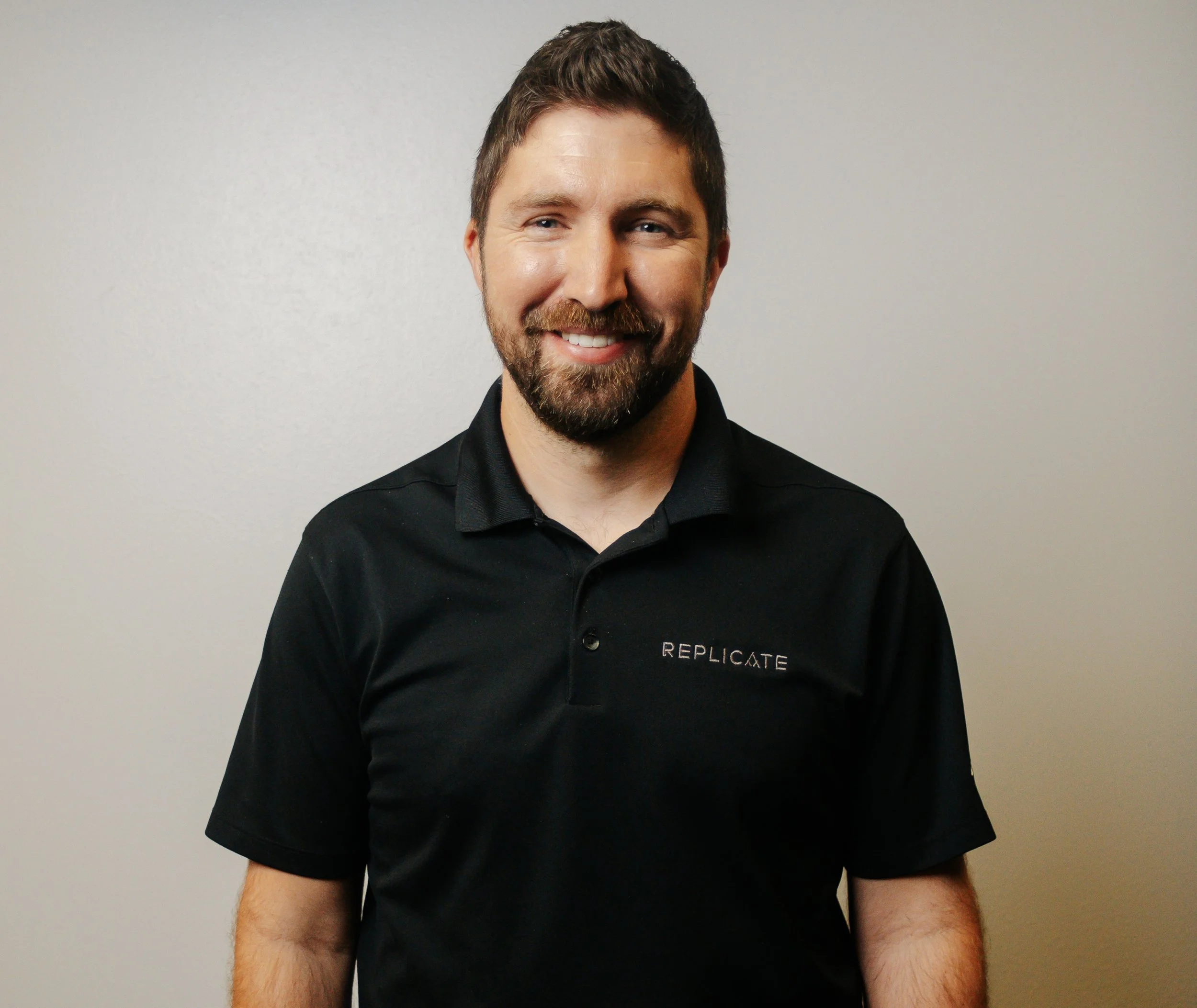
Brad Daugherty
Senior Columnist
Brad serves as the COO of Replicate Ministries, a coaching and consulting organization with a mission to empower churches to activate their unique disciple-making movement. Prior to Replicate, he has held various roles within the church, from Worship Pastor to Executive Pastor, and loves serving the local church by helping pastors and leaders discover ways to do ministry differently. Brad has coached and consulted leaders from both large and small churches, equipping them to grow sustainably through discipleship tools and strategies. Brad Lives in East Texas with his wife Stephanie, and four kids, James, Henry, Eleanor, and Andrew. He loves serving at his local church, New Beginnings, where he is on the worship team, and serves on the lead team in an advisory role.
“I can safely say, on the authority of all that is revealed in the Word of God, that any man or woman on this earth who is bored and turned off by worship is not ready for heaven.”
A.W. Tozer
What if you lived with the same intentionality about compounding joy, generosity, and humility as you do about compounding money — and shaped your daily habits around the return you actually want?
What if the soundtrack you’ve been repeating lately isn’t telling the full truth — and the first step toward healthier leadership is paying attention to the words you keep saying?
What if the thing weighing on you most right now isn’t complicated at all — it’s just waiting for you to embrace the awkward and deal with it?
What if what you need right now isn’t a better system or more clarity — but the courage to commit to the one action you already know needs to happen?
What if instead of critiquing from a distance, I led with curiosity? What if I assumed the best? What if I looked for what God was doing in them instead of immediately measuring it against myself?
Because when I lead with curiosity, I almost always find something worth celebrating. I discover a part of the body of Christ I needed but didn’t know I was missing. I see a different gift, a new perspective, or a unique approach that expands my own understanding.
What if, instead of rushing to fix what’s right in front of you, you slowed down long enough to ask what’s underneath — and even more, who you’re becoming and who you’re helping others become in the process?
What I Learned This Week: What If No One’s Actually Thinking About You? What if we worked from the approval of God rather than for it—and for the benefit of others rather than their applause?
What if you stopped trying to “keep the peace” this week, and instead, stepped into a moment of (potentially awkward) honesty and humility — at work, in your church, or even around your own dinner table — all with the goal of making peace?
What if you slowed down this week and asked “why” one more time before you jumped to solutions — at work, in your church, or in your own home? Could you truly solve a problem rather than just addressing a symptom?
Leadership isn’t a destination. It’s not a point on the map where you finally get to kick back and say, “I’ve made it.” It’s a constant journey of curiosity — of staying open, asking questions, and wondering, “what if?” What if there’s a better way? What if this could be clearer? What if…
Most church leaders don’t set out to avoid decisions. In fact, we’re making them all the time — about staff, budgets, calendars, volunteers, and ministries. But there’s a particular kind of indecision that quietly drains the health and momentum of a church: the failure to act when the moment is ripe.
Time is one of your most limited resources as a church leader — and one of the easiest to spend poorly. Not because you don’t care, but because you do. When we talk about stewardship in the church, we usually mean money. But your time may be the most valuable thing you steward. How you spend it signals what you value. Who you spend it with signals what you prioritize.
Your church can’t run on an empty tank — and neither can you. Healthy leadership flows from a healthy leader. If you burn out physically, emotionally, or spiritually, it will ripple through your team and congregation. So there is one more stewardship investment we can’t afford to overlook — and it’s the one leaders tend to neglect most: Steward Yourself.
Vision gives direction. People carry the vision forward. But without healthy systems in place, even the clearest vision and most committed people will eventually slow down, stall out, or burn out. That’s why the third stewardship investment is Steward the Systems.
Vision alone won’t move the mission forward. Vision needs carriers — people who believe it, own it, and run with it. That brings us to the second stewardship investment: Steward the People.
Stewardship isn’t just about finances. It’s about your vision, your people, your systems, and even your own health. Neglect any one of them, and the cost will eventually show up in your church’s momentum, unity, and mission.
Let’s start with the first investment: Steward the Vision.
Spring is the season for deepening. It’s not just about doing more. It’s about helping your people grow deeper in their walk with Jesus and more engaged in the mission of the church.
This is a key moment. Don’t let it slip by.
In nature, winter is when things look dormant — but under the surface, critical work is being done. Roots grow deeper. Energy is conserved. Pruning happens. And that hidden work is what makes future growth possible.
Ministry has a winter rhythm, too — and wise leaders know how to lean into it.
Part Two: Fall. After a summer of looser schedules, vacations, and flexible routines, many people enter the fall ready for some structure. Families are looking for patterns. Individuals are seeking clarity. They may not use this language, but what they’re really asking is: Where do I belong? Where am I going? What’s next for me here?
In this series, I want to explore four ministry seasons — Summer, Fall, Winter, and Spring — not as fixed dates, but as leadership mindsets. Each one offers unique opportunities (and challenges), and when we recognize and lead in rhythm with these seasons, we can shepherd our churches more faithfully, strategically, and sustainably.
Many pastors live on one of two extremes: they're either stuck managing reality or chasing fantasy. One leads to burnout from busyness, the other leads to burnout from disappointment. What if vision wasn’t about dreaming bigger or shrinking to fit—but about aligning with God’s voice, timing, and provision? In this three-part series, we’ll explore what happens when vision is too big, not big enough, and just right.
Many pastors live on one of two extremes: they're either stuck managing reality or chasing fantasy. One leads to burnout from busyness, the other leads to burnout from disappointment. What if vision wasn’t about dreaming bigger or shrinking to fit—but about aligning with God’s voice, timing, and provision? In this three-part series, we’ll explore what happens when vision is too big, not big enough, and just right.
Many pastors live on one of two extremes: they're either stuck managing reality or chasing fantasy. One leads to burnout from busyness, the other leads to burnout from disappointment. What if vision wasn’t about dreaming bigger or shrinking to fit—but about aligning with God’s voice, timing, and provision? In this three-part series, we’ll explore what happens when vision is too big, not big enough, and just right.
Whether it’s a missed text, a late response, or an overlooked task, there’s something in me that recoils when I know I’ve let someone down. I’m wired as an achiever—I want to do the job well, show up fully, honor people, and keep all the plates spinning. I take commitments seriously, and I don’t like giving anything less than my best.
In the first two parts of this series, we discussed the biblical reality that all believers are called to ministry, and that church leaders are tasked with equipping the saints for that work. But what does it look like when the church begins to operate as a collective of active ministers? What happens when the priesthood of all believers is fully embraced and lived out?
In the first part of this series, we explored the biblical truth that all believers are called to the priesthood of ministry. But knowing that everyone is a minister is only part of the equation. The next crucial step is equipping the saints for the work of ministry.
In many churches, the work of ministry is often associated with pastors and professional ministers. The common mindset is that the congregation’s role is to sit, listen, and support the ministry of those called to lead.
If you’ve been in church long enough, you’ve probably seen it happen—a pastor burns out, quits ministry, or worse, has a moral failure that shakes the entire congregation. It’s heartbreaking every time.
Pastors aren’t just spiritual leaders—they’re people. And like anyone else, they face stress, anxiety, discouragement, and even depression. But unlike most people, they often carry these burdens alone.
When we think about discipleship, we often picture small groups, church programs, or mentoring relationships. But the truth is, discipleship starts long before a child ever steps into a youth group—it begins at home. As parents, we are called to be the primary disciple-makers in our children's lives, shaping their faith through both intentional teaching and everyday moments.






























